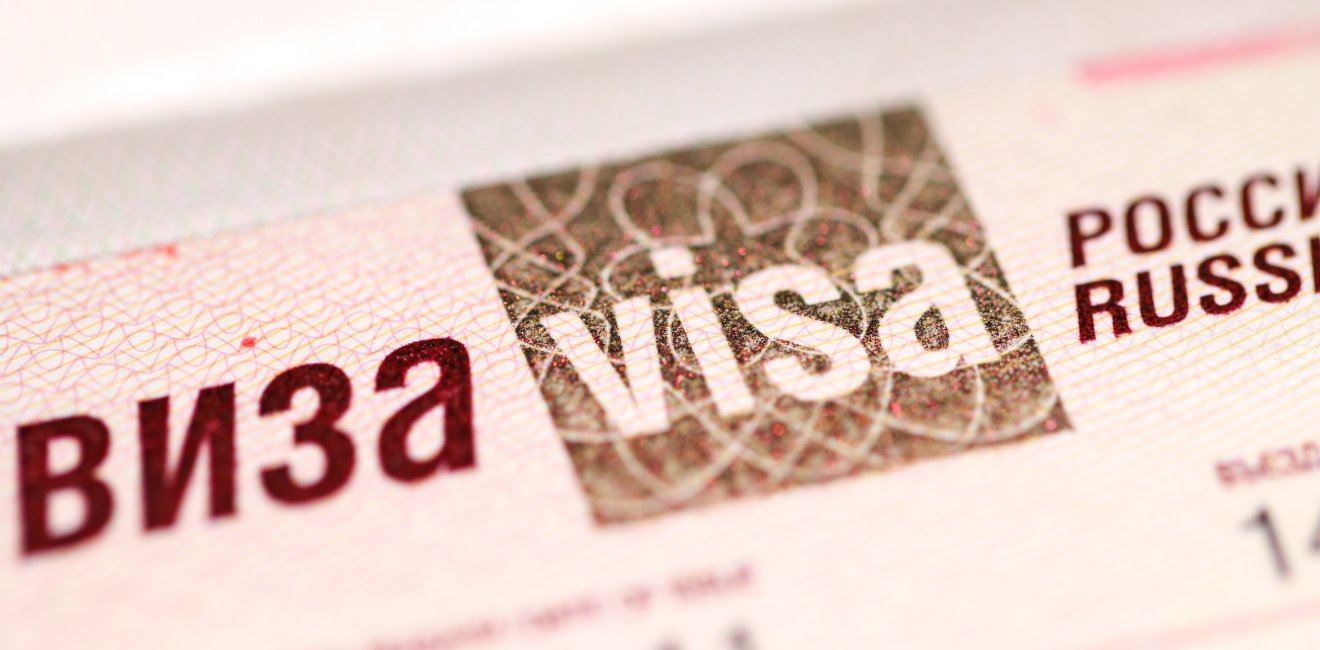
A blog of the Kennan Institute
BY OLGA GULINA
Both Russian and European leaders have understood for quite a while that an open and visa-free Europe is the best strategy for bringing Russia and its citizens closer to Europe, and vice versa.
Like other aspects of EU-Russia cooperation on migration, visa liberalization has been seriously limited since March 2014, when the EU and Russia adopted mutual restrictive measures against Russia in response to the country’s illegal annexation of Crimea and the deliberate destabilization of Ukraine.
In this climate of uncertainty and restrictions, Russia now leads the way in visa liberalization policies. In 2017 the country embarked on unilateral visa liberalization by introducing electronic visas (e-visas) for visiting three locations in Russia: Vladivostok, Kaliningrad, with the surrounding region, and St. Petersburg, with the surrounding region.
Starting January 1, 2021, Russia will introduce free e-visas to facilitate free travel to all regions of the country. The State Duma amended the law regulating travel in and out of the Russian Federation to that effect in late July 2020. Next January, Russia is set to become a country with a very liberal immigration regime: nationals of fifty-three countries, including all of the EU but not including the U.S. and Britain, will get a chance to enter Russia for a period of up to sixteen days by filling out a simple form on the Russian MFA website. The COVID-19 pandemic may of course affect the measure, as other countries might still keep their infection-related restrictions in place into 2021.
Recent years have shown that many factors have influenced and will continue to influence human mobility between the EU and Russia. Among them are a decline in the real incomes of Russians, devaluation of the Russian rouble, and the Russian government's isolationist and anti-Western policies. All these factors distance Russians and Europeans from each other, deepening divisions, entrenching separations, and limiting opportunities for dialogue. However, there is no alternative to openness, transparency, and free travel as the best strategy to bring Europeans and Russians – who are no doubt Europeans, too – closer together.
Phases of the Visa Regime Dialogue
The long-standing effort to simplify and liberalize the visa regime between the EU, its member states, and Russia falls roughly into three periods.
There was a period of mutual interest up until 2013. The EU, its member states, and Russia led an intensive dialogue on visas reflecting a certain political will and understanding of common interests. However, the Russian-Ukrainian conflict, military operations in eastern Ukraine, and the problem of Crimea and its legal status have led to a profound crisis in EU-Russian relations, freezing discussion of a new agreement on visa liberalization.
In 2014–2016, mutual alienation followed when the EU adopted economic sanctions, sanction lists, and bans on travel between Russia and the EU.
Phase three, a period of divergence, started in 2017 and continues to the present. Since 2017, the Russian Federation has followed a visa liberalization policy unilaterally through the issuance of e-visas, while the EU and EU member states have kept the status quo in place with respect to EU-Russia visa policies. The provisions of EU Regulation No. 2019/1155, updated in February 2020, which put forward increased visa fees and longer processing times, do not apply to Russian citizens.
The EU Institute for Security Studies (EUISS) has included among its “what-if” scenarios a scenario for visa-free travel of Russian citizens to EU countries starting in 2024. This scenario envisions the EU launching a pilot phase of visa freedom for Russian citizens starting in 2024 and lasting for two years. However, Russian passports issued in regions with a nonrecognized status and quasi-states, such as Crimea, the Donbas, Abkhazia, South Ossetia and Transnistria, would not be accepted for visa-free travel in the EU.
The EUISS projects a twofold increase in the numbers of Russians traveling to EU countries after all travel restrictions are lifted: 62 million are projected to enter the EU in 2026, up from 32 million in the pre-crisis year 2013. The EUISS also envisions a sharp decrease in mutual mistrust and a “remarkable improvement in general positive attitudes towards the EU by Russians.” Still, let’s not forget that in the real world it is Russia that leads the way in visa liberalization today.
Before 2014, EU countries were among the top ten in terms of number of citizens applying for a humanitarian visa to travel to Russia to maintain academic, cultural, and other contacts or to engage in sports or religious or charitable activities. All that changed after 2014.
Finding a Path through Barriers
A number of obstacles stand in the way of bilateral cooperation between NGOs and nonprofit organizations in Russia and the EU countries. The EU and member states' laws lack procedures and mechanisms to facilitate ad hoc visa issuance to members of Russian civil society, including human rights defenders at risk in Russia.
Bureaucratic barriers in Russia are a problem, too. Russian laws and law enforcement practices do not provide clear guidance as to what types of Russian visas are required for civil society actors from the EU wishing to engage in certain types of activities in Russia as part of their cooperation with Russian partners. This lack of clarity has often resulted in involuntary violations of the visa regime. The Russian authorities do not always accept visa invitation letters sent by Russian NGOs to their EU partners.
The practice of administrative checks targeting Russian NGOs and resulting in fines and even enforced dissolutions based on the “foreign agents” law has further complicated the engagement between civil society organizations in Russia and the EU. While the Russian law on so-called “undesirable organizations” has mainly affected US-based groups, a few European NGOs also fall into this category and so have been effectively barred from working in Russia.
In January 2020, the EU Parliament discussed the bloc’s visa policies in respect to Russian civil society actors, in particular human rights defenders. Representatives of EU civil society urged reopening the discussion on visa-free entry into the EU for representatives of human rights groups at the invitation of NGOs working in EU countries, as well as EU and Council of Europe institutions mandated to defend public interests and human rights.
For the EU, it is essential to create a system of mutual invitations for representatives of the EU and Russian human rights community and to consistently monitor and document any violations or refusals by EU member states to issue visas to human rights defenders, among other measures.
The opinions expressed in this article are those solely of the author and do not reflect the views of the Kennan Institute.
Author

Founder & CEO of the RUSMPI – Institute on Migration Policy

Kennan Institute
After more than 50 years as a vital part of the Wilson Center legacy, the Kennan Institute has become an independent think tank. You can find the current website for the Kennan Institute at kennaninstitute.org. Please look for future announcements about partnership activities between the Wilson Center and the Kennan Institute at Wilson Center Press Room. The Wilson Center is proud of its historic connection to the Kennan Institute and looks forward to supporting its activities as an independent center of knowledge. The Kennan Institute is committed to improving American understanding of Russia, Ukraine, Central Asia, the South Caucasus, and the surrounding region through research and exchange. Read more

Explore More in The Russia File
Browse The Russia File
Chechnya as a Model of Modern Russia

Russia’s Indigenous Communities and the War in Ukraine

Gas and Power in a Changing US–Russia Relationship

